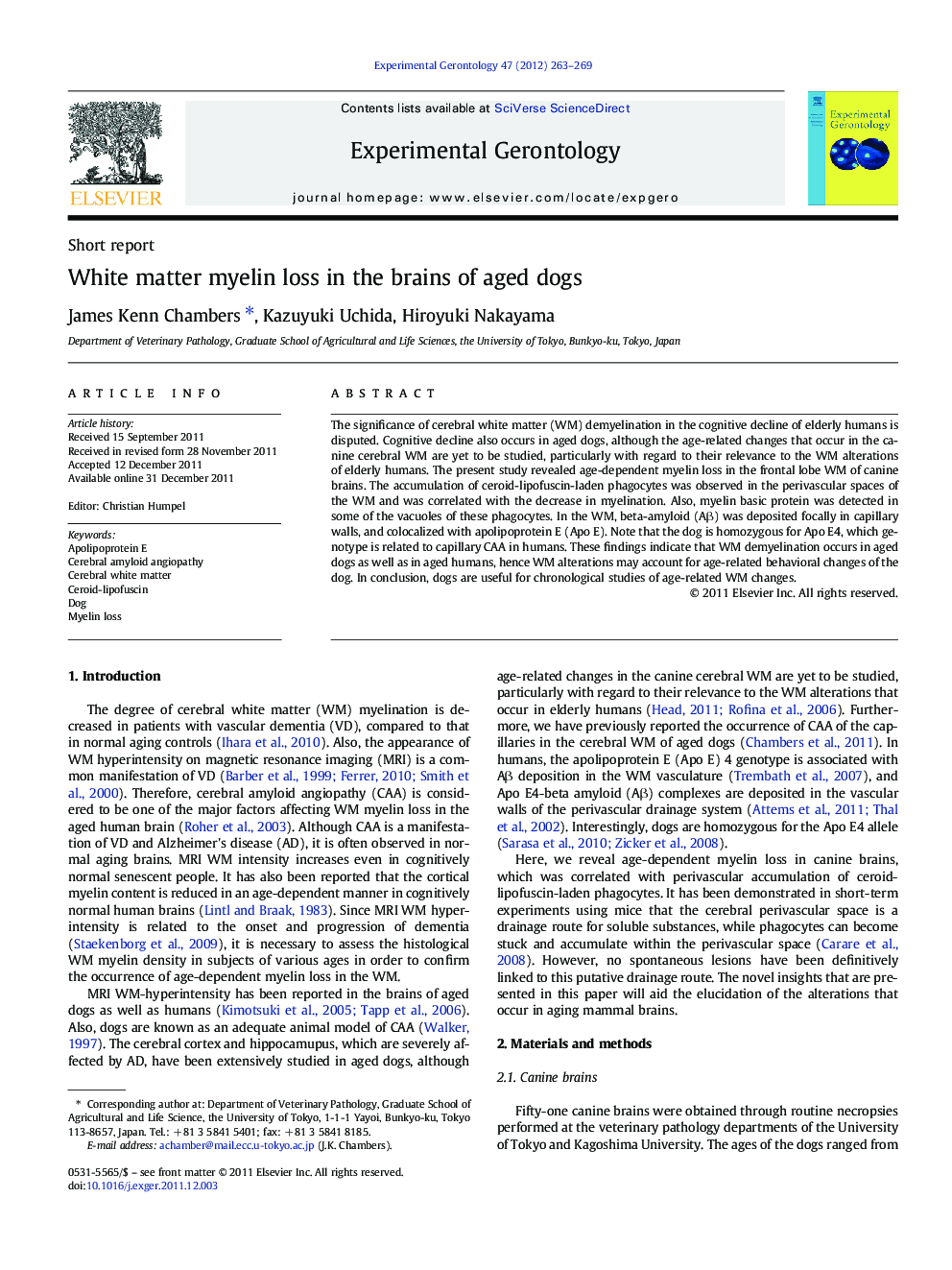| Article ID | Journal | Published Year | Pages | File Type |
|---|---|---|---|---|
| 1906760 | Experimental Gerontology | 2012 | 7 Pages |
The significance of cerebral white matter (WM) demyelination in the cognitive decline of elderly humans is disputed. Cognitive decline also occurs in aged dogs, although the age-related changes that occur in the canine cerebral WM are yet to be studied, particularly with regard to their relevance to the WM alterations of elderly humans. The present study revealed age-dependent myelin loss in the frontal lobe WM of canine brains. The accumulation of ceroid-lipofuscin-laden phagocytes was observed in the perivascular spaces of the WM and was correlated with the decrease in myelination. Also, myelin basic protein was detected in some of the vacuoles of these phagocytes. In the WM, beta-amyloid (Aβ) was deposited focally in capillary walls, and colocalized with apolipoprotein E (Apo E). Note that the dog is homozygous for Apo E4, which genotype is related to capillary CAA in humans. These findings indicate that WM demyelination occurs in aged dogs as well as in aged humans, hence WM alterations may account for age-related behavioral changes of the dog. In conclusion, dogs are useful for chronological studies of age-related WM changes.
► Cerebral white matter myelin decreases in cognitively declined elderly humans. ► The present study revealed white matter myelin loss in aged dogs. ► Oxidized lipid pigments were observed in the perivascular spaces. ► Beta-amyloid was deposited in capillary walls, colocalized with apolipoprotein E. ► Dogs may be useful for chronological studies of age-related white matter demyelination.
